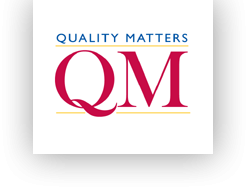Innovative Teaching and Learning Week brings together instructors from across campus to share emerging approaches, p
Q&A with FLC Facilitator Dr. Latasha Holt
Mon, 08/19/2024 - 10:44am
Each year, our Faculty Learning Community program unites small cohorts of faculty and staff to enhance hybrid and online teaching and learning through specific pedagogies, techniques, or technologies.
Last year, Dr. Latasha Holt, associate professor and assessment coordinator in the College of Education & Human Development, facilitated an FLC on AI in Today’s Classroom: Exploring Tools, Tips, and Dispositions with Classroom Use.
Read her interview with Mike Williams, instructional technologist, and Dr. Francesco Crocco, assistant director for instructional support, below.
Why did you decide to facilitate your FLC?
I previously had the opportunity to work with AI in my department, my college, and through Distance Learning, and I had participated in an FLC before.
Understanding AI's impact on higher ed was crucial for me because it affects all areas of our lives. People across campus are always willing to hear what we have to say in the College of Education. I have made so many connections with people who have come to us like, “Hey, can you come present on AI and rubric building?”
So, the two key takeaways were that I recognized the importance of the topic of AI, and I wanted to have an outreach for my college across our campus.
Each year, we ask each of our FLCs to complete certain deliverables and show them at the FLC showcase at the end of the year. What were your FLC’s deliverables?
My FLC had two main projects that we split up into smaller groups and worked on and came together to discuss during our meetings.
First, we had a team that conducted a comprehensive survey among faculty and students to gather insights on AI usage, effectiveness, and required resources for integration into classrooms.
We also had a team that worked on gathering information on different AI tools and exploring ways that they could be used in the classroom for different purposes.

Could you tell us a little bit about what you see as the benefits of participating and facilitating an FLC, and specifically your FLC?
There are many different models used in a variety of settings to unite disciplines. In our University, Distance Learning is like a hub, a middle meeting ground for connecting where we’ve been and where we’re going with online learning. The benefits of participating are the fact that we can make those connections with other disciplines.
My FLC members and I talked about so many things, whatever we were going through personally, like working toward promotion and tenure, trying to publish, facing scrutiny for using AI as a tool in our classes and research. Even though we were all different and came from different backgrounds, we could come together and find common ground around AI.
What were your personal contributions to your FLC?
My personal contributions centered on listening to and understanding the learning needs of my FLC members and organizing them and their work from there. That’s where the decision to split into two working groups came from. I had to really find a balance between leading and letting the group lead itself.
On the administrative side, I kept a log of emails to ensure clarity and organization. I tracked attendance to follow up with those who missed meetings. And as the facilitator, I helped navigate challenges like IRB issues to keep us on track. Celebrating our achievements and validating members' ideas was important to me, so I made sure to do a lot of that, too.
What tools and strategies did you think worked to facilitate your FLC?
Early on, I found that tools like Padlet were a big hit for sharing ideas and identifying thematic threads as my FLC decided where we wanted to go with our work. Although we used it less as we solidified our purpose as an FLC, it was a key tool in the beginning.
My approach was highly detailed and included planning every minute of our meetings to ensure we had time to break out into smaller groups and time for independent work. I worked with my liaison in Distance Learning to plan details, share knowledge about different AI tools, and plan breakout groups to explore and share ideas.
We also used a Moodle course shell to store our materials and access them when preparing for the FLC showcase, which was super helpful.
What have you learned from facilitating an FLC?
We’re a big campus, and a lot of us are spread out. Coming together in person and virtually with my FLC, it just kind of showed me that we’re more united than we are different, even if we all come from different backgrounds.


 Quality Matters has launched the QM Higher Education Rubric, Seventh Edition.
Quality Matters has launched the QM Higher Education Rubric, Seventh Edition.